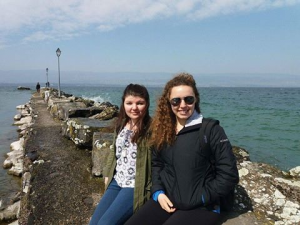LES GAGNANTS DU CONCOURS !
COLLEGE ALBERT CAMUS GENLIS
COLLEGE ISLE DE SAONE PONTAILLER
LYCEE PRIEUR DE LA COTE D OR AUXONNE
L’association AFS, partenaire du Lycée Prieur depuis 5 ans, a organisé en octobre 2018 un grand concours citoyen entre trois établissements du Bassin Val de Saône : le Lycée Prieur de la Côte d’Or d’Auxonne (représenté par M Coqueugniot, Proviseur), le Collège Albert Camus de Genlis (Mme Poniewiera, Principale) et le Collège Isle de Saône de Pontailler-sur Saône (Mme Ottone-Guillet, Principale). Les deux premiers prix très attractifs ont motivé bon nombre de collégiens et lycéens : 3 mois offerts en Europe pour le premier prix et près de la moitié du coût d’un séjour de 3 mois pour le deuxième prix.
17 élèves y ont participé en élaborant diverses créations (vidéos, poèmes, bandes-dessinées, affiches,t-shirts…) justifiées par une lettre de motivation sur le thème donné : « Que m’apporteront ces trois mois à l’étranger en tant que citoyen de l’Europe ? » Tous les candidats ont fait preuve d’originalité, de créativité et d’enthousiasme, bravo à eux tous ! Madame Martine BELORGEY, présidente de la Commission Nationale « égalités des chances AFS », qui anime chaque année des ateliers multiculturels au Lycée Prieur, a remis le 12 décembre 2018 les prix avec enthousiasme et émotion, accompagnés des trois chefs d’établissements et des trois professeurs d’anglais référentes au projet : Mmes Vadot (Lycée Prieur), Mc Cann (Collège Pontailler) et Jafflin (Collège Genlis).
La grande gagnante de ce concours est JULIETTE MATHIRON, élève de seconde , qui va donc vivre une expérience inoubliable en Italie de trois mois grâce à son poème qui a été le coup de coeur du jury composé de 9 personnes.
Le deuxième prix a été gagné par LALIE DESRIAUX, élève de seconde également, qui a choisi l’Allemagne comme destination. Toutes deux partiront de septembre à décembre 2019.
Les troisième et quatrième prix ont été respectivement attribués à JOAN TERRET et ANAE MARKIOLI tous deux en seconde, qui ont aussi prévu de découvrir en septembre la Pologne et l’Allemagne. Bravo à tous !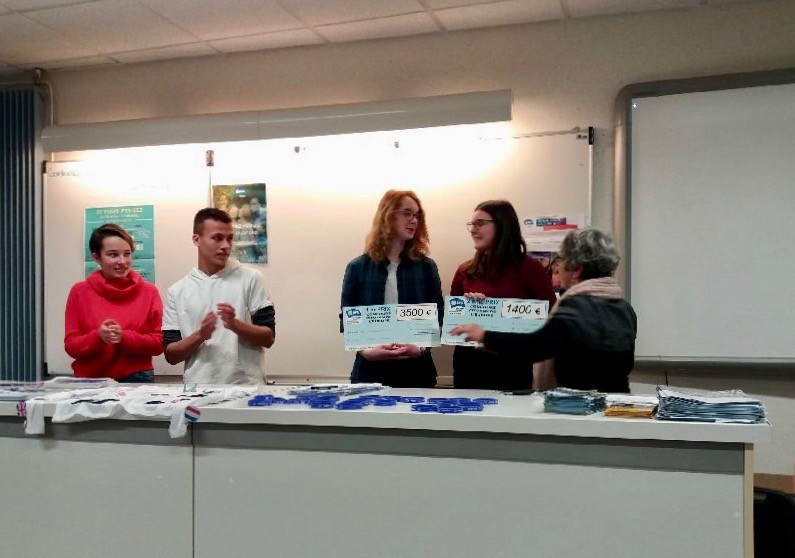
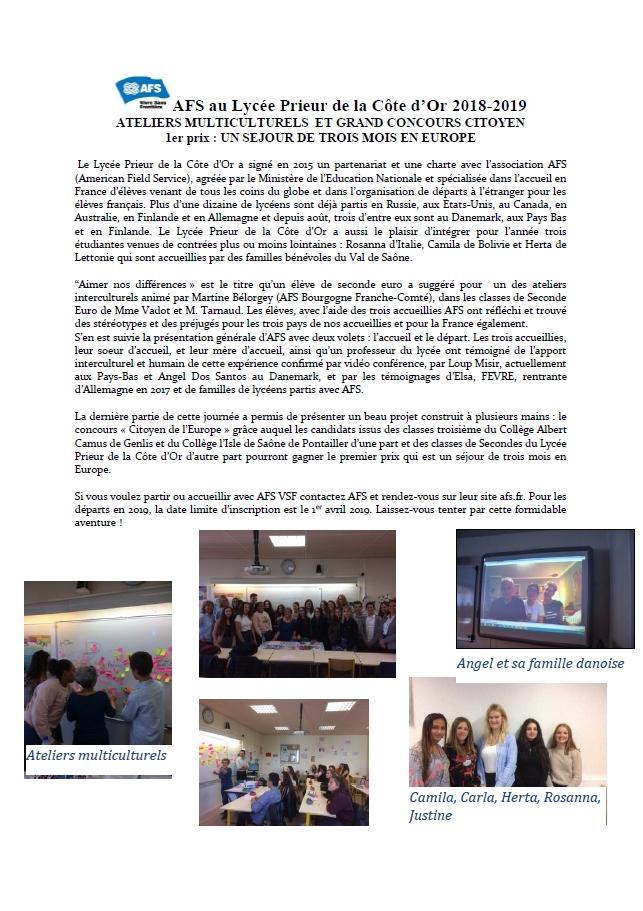
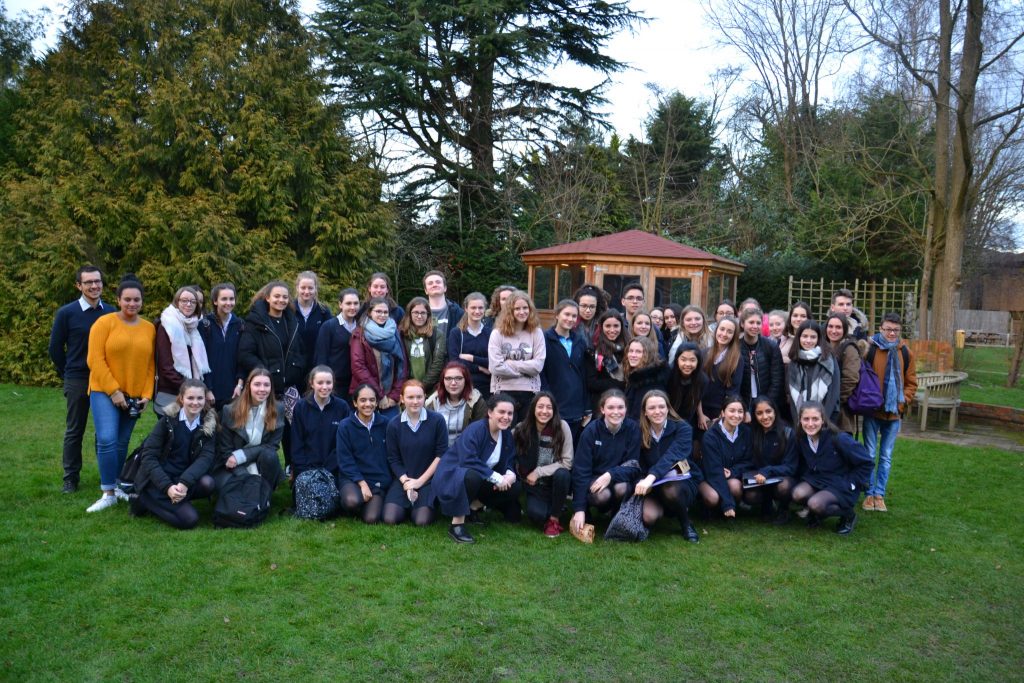












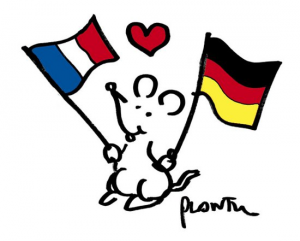 m Germany and she does her civic service in France, in our high-school. She has chosen France because she likes our country and after her bachelor’s degree, she has decided to take a year-off in a school of another country. Later, she plans to become a teacher.
m Germany and she does her civic service in France, in our high-school. She has chosen France because she likes our country and after her bachelor’s degree, she has decided to take a year-off in a school of another country. Later, she plans to become a teacher.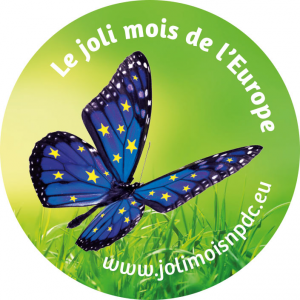
 . Each group had to deal with a specific country. We could choose between England, Spain, Germany, Slovakia, Cyprus and Czech Republic. At the end of our collaborative work, that was really fun to make a poster for an exhibition in the high school library.
. Each group had to deal with a specific country. We could choose between England, Spain, Germany, Slovakia, Cyprus and Czech Republic. At the end of our collaborative work, that was really fun to make a poster for an exhibition in the high school library.